Benefits Of Rosehip Oil For Hair And Skin
Derived from grown bushes native to Chile and its adjoining areas, rosehip oil may help improve your hair and skin thinning.
This "dry" oil is absorbed very quickly into the skin and doesn't leave a residue.
It's chock-full of acids and minerals that help fight scarring, stretch marks, eczema, sunlight harm, hyperpigmentation, and aging.
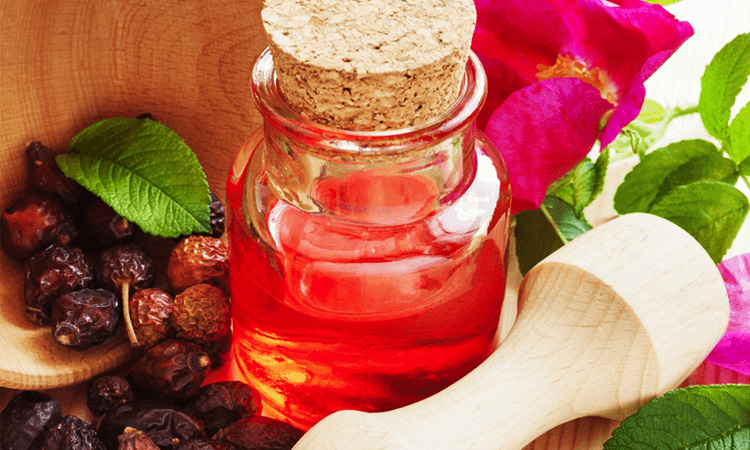
Pressed from the seeds of wild rose bushes that grow predominantly in Chile and its surrounding regions, rosehip seed oil is poised to become the next miracle beauty oil.
Pure rosehip oil is amber in color and has been used for centuries by Mayans, Egyptians, and Native Americans for its healing powers.
It's a light-weight, non-greasy oil that doesn't leave behind any residue that is messy.
This’s a closer look at the several benefits you may derive from this particular oil.
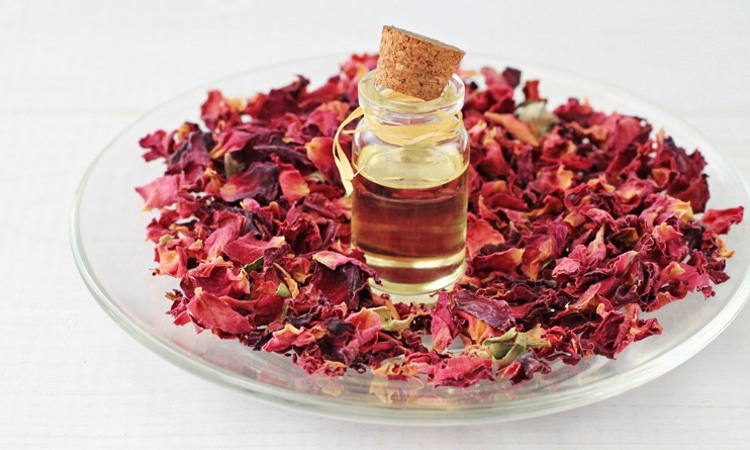
What Does Rosehip Oil Contain?
A lot of things that's great for you!
Rosehip oil contains large quantities of omega 3 (linolenic acid) and omega 6 (linoleic acid) fatty acids which might help hydrate and moisturize dry skin, besides protecting it from environmental harm.
Additionally, it contains omega 9 (oleic acid) fatty acid, which protects against damage to the tissues and may improve overall skin wellness.
Rosehip oil is also rich in phytosterols that have antiaging benefits.
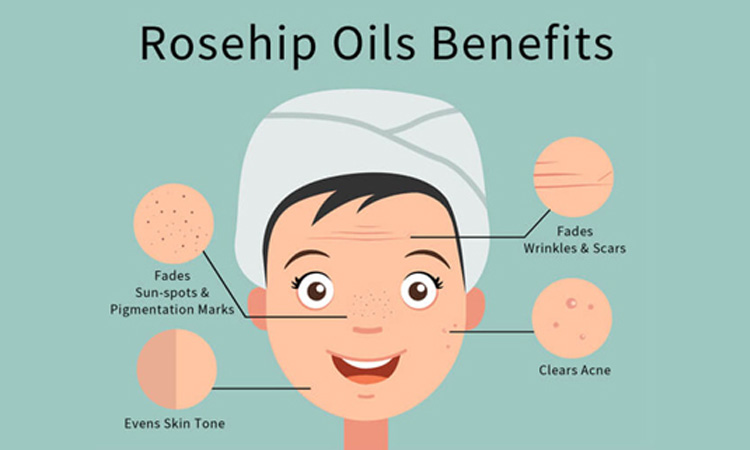
What’s more, both rosehip oil along with the seed extract are rich in vitamin C, that has both anti-oxidant and anti-inflammatory properties.
Additionally, it has pro-vitamin A, a beta-carotene that is a precursor of vitamin A.
This helps reduce fine lines, wrinkles, and age stains and rejuvenate skin cells.
These properties are why rosehip oil is increasingly being utilized to act as a natural defense against environmental pollution, sunlight harm, and wrinkles, and also to improve overall hair and skin health.
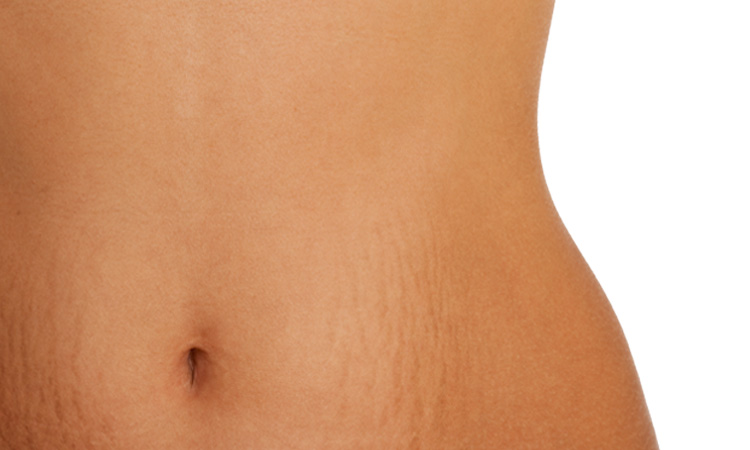
1. Scars And Stretch Marks Probably the most critical advantage of rosehip oil is its efficacy in healing scars.
Be it scarring from acne, surgery, or burns, rosehip oil may help fade and heal those scars with time.
One study found that usage of rosehip oil among patients suffering from traumatic, burnoff, and surgical vulnerability led to remarkable improvements in appearance and skin wellness over a six-month period.
Researchers credit these healing properties to the unsaturated essential fatty acids found in rosehip oil.
Rosehip oil also can help prevent and reduce stretch marks by increasing collagen production and improving skin elasticity.
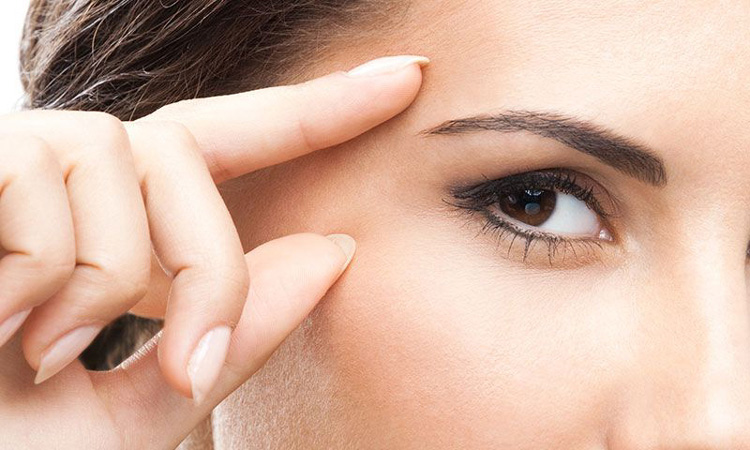
2. Premature Aging Researches show that rosehip oil may reverse the appearance of early signals by improving skin elasticity, tone, and feel.
This effect of rosehip oil is attributed to its vitamin and fatty acid content.
Fine lines, wrinkles, and brown spots were all found to decrease with time with the application of rosehip oil and subjects reported smoother and fresher skin.

3. Eczema And Dermatitis Rosehip oil is a fantastic moisturizing and exfoliating agent and is ideal for treating a plethora of dry skin conditions.
It's particularly helpful in soothing signs of eczema, psoriasis, and dermatitis.
Even though it’therefore are not meant to substitute medication, applying several drops of rosehip oil on affected areas could offer excellent additional help.

4. Vulgaris And HyperPigmentation Rosehip oil has anti-inflammatory properties, so utilizing a few drops every day on acne-prone skin can reduce the probability of a breakout.
Its properties additionally stave off bacteria.
However, do note: it is not a wise idea to utilize rosehip oil directly on the skin if you’re experiencing an active bout of acne because it can cause irritation.
In animal studies, rosehip oil has also been proven to inhibit skin pigmentation.
And although research is yet to explore how rosehip oil may help reduce hyperpigmentation in human subjects, it can be a fine idea to use this oil to heal blemishes and scars following a breakout.
Rosehip oil is a fantastic oil to include in your everyday skincare regimen if you’re predisposed towards acne.
The oil is light-weight and won’t clog your pores.
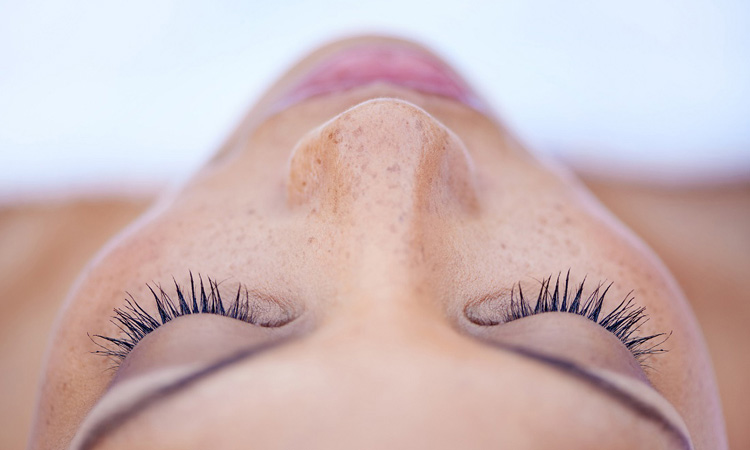
5. Sunburn And Sun Damage Rosehip oil is rich in tretinoin, a retinoic acid (vitamin A derivative) which may help reverse damaging effects of sunlight harm on the skin.
It could help shed old skin debris from the outer layer of your skin and regenerate collagen to fight sunburn and each day sunlight exposure.
Note that rosehip oil is not a sunscreen -- rather, it helps repair sunlight damage.
Applying rosehip oil on your face and neck after prolonged sunlight exposure may soothe and calm your skin.

6. Dull Complexion Rosehip oil is ideal for rejuvenating and refreshing exhausted and dull-looking skin.
Its elevated beta-carotene and anti-inflammatory properties help refresh the skin and make it look brand new.

7. Winter Skincare Rosehip oil is very effective when used to offset the drying effects of winter weather.
Dab a few drops on your own lips, heels, elbows, and knees where skin tends to chap, crack, or become rough under dry conditions.
It's also supposed to help strengthen nails that are brittle and have a inclination to break or chip easily.
Employ some on your nails as well during your routine.
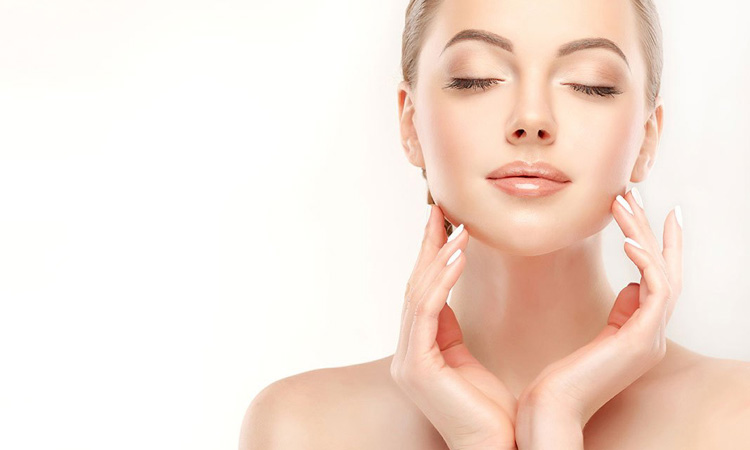
How To Use:
Bottles of rosehip oil come with a dropper.
Use the dropper to dispense 3--4 drops of the oil on your fingertips and lightly press or massage the oil into your neck and face and along your jawline.
You could add a few drops to your bath too.

Rosehip Oil Benefits For Hair Due to its fatty acid and anti-oxidant content, rosehip oil may be an elixir to your hair as well.

8. Dull Hair It could help moisturize your hair and deliver a shine to it.
It has been known to nourish hair too.

9. Dandruff You may also notice considerably less dandruff and scalp itch as a consequence of utilizing rosehip oil on a regular basis.
Some researches show that it revive and may protect treated hair.
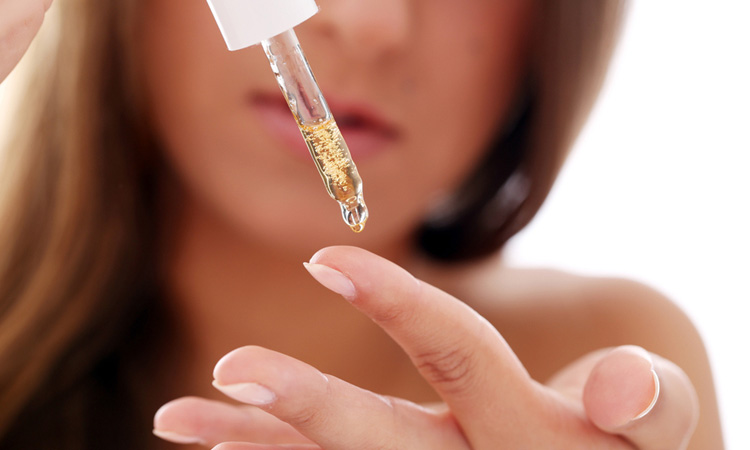
How To Use: You ought to use a little bit of rosehip oil before or following a wash to give your hair a glossy sheen.
Apply warmed rosehip oil to your scalp, massage for about 5 minutes, and leave on for about 1--two hours before washing your hair.
Post wash and air dry, your hair will feel softer and smoother.
For a post-wash serum take a little oil and massage along the length of your hair while it's damp.
Rosehip oil may also help fight frizziness in high-moisture conditions.
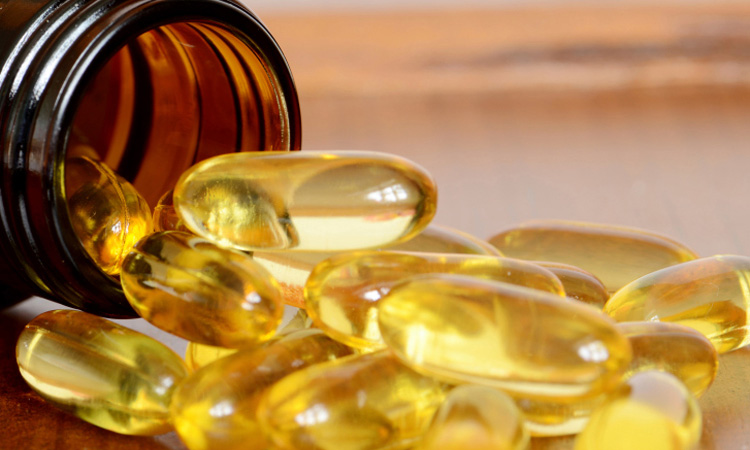
Negative Effects Of Rosehip Oil
Bear in mind that there's no recommended dosage of rosehip oil for skincare or haircare.
Although adverse effects are rare, allergy are possible.
A few of the possible adverse effects include rashes, watery and itchy eyes, dizziness, wheezing, difficulty in breathing, and chest discomfort.
We recommend you do a patch test before adding it to your skin regimen.

Consumption of rosehip oil could cause gastrointestinal issues and must be avoided by kids, and pregnant and breast feeding women.
The high vitamin C content can result in problems when ingested.
Things To Remember While Using Rosehip Oil Make sure to purchase rosehip oil that is certified 100% organic.
The pesticides in the non-organic oils may have unwanted effects on the skin.
Rosehip oil is most effective when it's cold-pressed because its nutrients and properties haven't been affected by warmth.
Rosehip oil has a tendency to become rancid, so make sure to store it in a cool place or in the refrigerator.
Recent Posts
-
The Power of Exosomes in Skincare
Exosomes in Skin Care: The Future of Exosome and Regenerative Medicine in Skin Science Skincare inn …Oct 17th 2025 -
Steps for a Skincare Routine
6 Steps to a Proper Skin Care Routine: Your Esthetician-Approved Guide to The Best Skin If you've ev …Aug 11th 2025 -
Treatment of Hyperpigmentation
How to Treat the Appearance of Hyperpigmentation This Summer: Your Complete Guide Summer sun is wond …Jul 17th 2025




